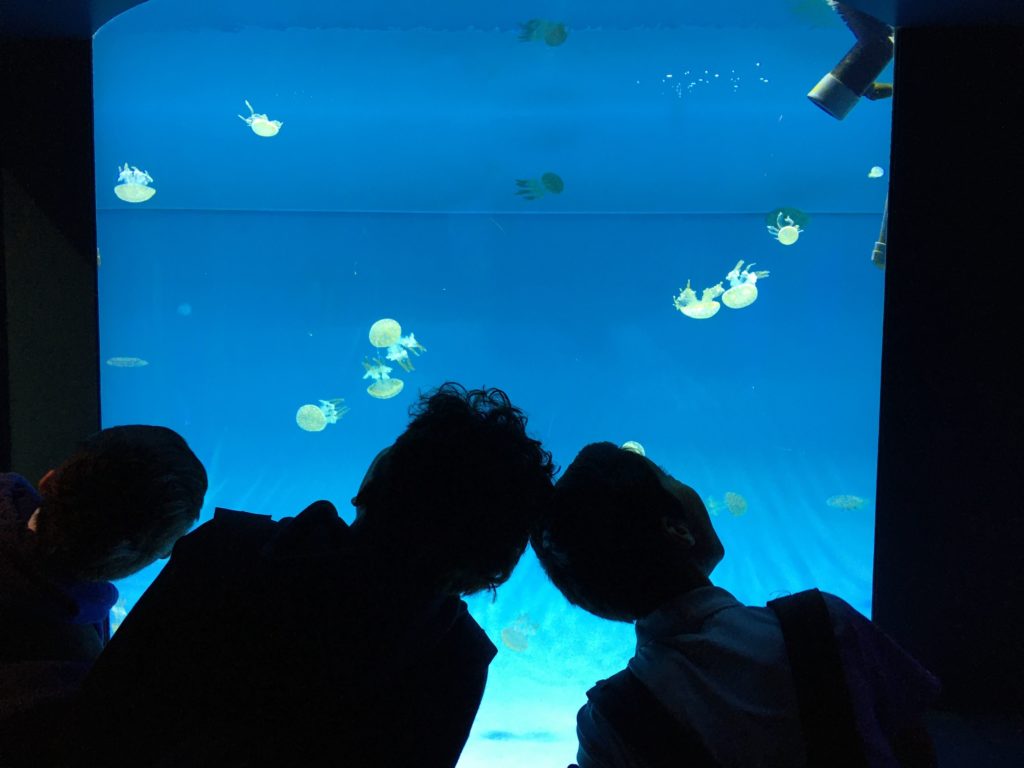
01 Apr Share FoLAR’s in-class curriculum with your family at home
During these uncertain times we are rethinking how to keep students, who are participating in our Source to Sea (StS) and Explore the Coast (EtC) education programs, connected to the Los Angeles River and the Pacific Ocean. While it’s difficult to make these connections without first-hand experiences, FoLAR is leaping forward to develop to offer a suite of remote learning resources, including virtual field trips and online resources to bring the River into the students’ households.
Our 3rd – 12th grade curriculum makes connections between the River’s past, present, and possible future with an emphasis on how humans have impacted the River’s biodiversity and ecosystem health over time. Lessons One and Three are conducted in-class by teachers, using presentations, worksheets, and our Watershed Wonders Resource Guide for Teachers. In Lesson Two, FoLAR educators roll onto campus with our 38’ mobile education center, the LA River Rover, and rotate students through three engaging activities. In our fourth lesson, we conduct an LA River field trip where hands-on, inquiry-based science exploration emphasizes thinking like a scientist. Some schools, a part of our grant funded program, go one step further by taking a field trip to explore both the Aquarium of the Pacific and the Golden Shore Wetland to see and touch marine life, watch the River flow into the ocean, and reflect upon our vast watershed.
While we aren’t able to interact with students on the River Rover and on the field trips, we’re working to prevent student’s River learning coming to a screeching halt. We’re recording Rover lessons, so teachers and students can continue with Lesson Three remotely. We’re also compiling video clips, reading materials and further resources to explore the River from home.
View the resources we share with teachers and use them in your home!
We’re eager to share these learning materials with you, too! Whether you’re an educator yourself or a parent home with children looking for enriching activities, we aim to be a resource for you whether you need a River fix, or a break from the news. When we can safely gather, we look forward to walking the River with you and your family.
Here’s what one teacher wrote us about our curriculum and field trip after their class from Boyle Heights High School received a scholarship to participate in our programs in March 2020:
In reflection of our time studying the ecology of the L.A. river and the curriculum from FoLAR, I am elated by the amount of engagement elicited by the unit, and it was amazing to see the students interact with the river during our field trip. Most of our students have had adverse childhood experiences and have not had success in our school system, so it was a joy being at the river seeing the students let their guards down. They were more relaxed and happier than I’d seen them previously, and on the bus ride home there was a palpable sense of stress that overcame them as we went back to our neighborhood. I could see their body language transform from light and soft to tense, the jokes started up again, and several students did not want to go back to school. The following days, students wrote evidence-based letters advocating for the Mayor or City councilmembers in our area to support the FoLAR initiatives, and most sent their letters digitally.
We endeavor to educate young people about our local urban ecosystem and raise their awareness to the world around them in the hope that they will become rising River Stewards. We are thrilled to receive messages like the one above that indicate just how impactful our curriculum can be introducing the River to young people. Now, with more digital learning opportunities directly from FoLAR, you can share lessons from the River with your students at home.
Share the same resources at home that our teachers do in-class with students!
We thank the U.S. Fish and Wildlife Service and the Joseph Drown Foundation for funding the Source to Sea program. The Coastal Conservancy’s Explore the Coast grant allows students who have never seen the ocean to experience it with us at the River’s mouth.


